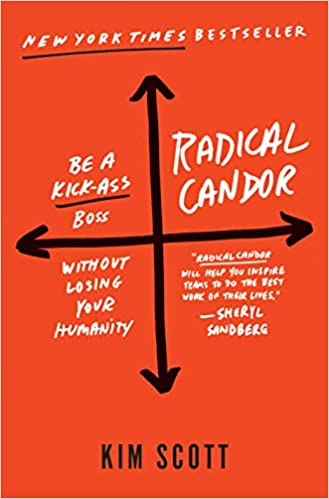Let me be honest with you: I don’t always tell the truth. I don’t blatantly lie, and I don’t camouflage things as much as I did in my younger years. It’s not radical, but I may omit some facts or skirt around them.
So I knew, as soon as I read the title, that Kim Scott’s book, “Radical Candor,” was going to force me to take a long, hard look at my relationship with the truth. Scott’s model treads a line between what she calls Obnoxious Aggression and Ruinous Empathy, hence the Radical Candor of the title.
Being entirely honest sounds like a straightforward proposition. But it’s human nature to assess how the whole truth will land first, before daring to speak it. Before opening my mouth, I may ask, “Is it safe to speak the truth? What if I annoy or anger someone? What if I lose my listener’s respect, or worse still, lose my job?” In short, what if I don’t get what I want?
On a Hiding to Nothing
Take the simplest and perhaps most frequent question we get asked, “How are you?” Sometimes the questioner really does want to know if we’re in good health. Other times, the person is just breaking the ice before moving on to the real topic of conversation.

In my former years, I’d rarely tell the truth in answer to this question. Instead, I tended to hide my true feelings beneath a facade of confidence and competence. I wanted you to believe that I was robust, resilient and doing well, all of the time. I wanted to hide any sign of weakness.
This was especially the case at work.
I used to work as a news reporter, assigned to politics and big breaking stories like bomb attacks and earthquakes. Often, I toiled through the night or travelled across time zones, ignoring my need to rest.
Trust in a Radical Solution
I was exhausted and stressed, sometimes in tears. But if a boss asked me how I was doing, I’d tell them I was doing fine. And I’d tell them I was on top of the story, even if I was way behind. Why? Because I wanted to save face and I didn’t want to provoke their disapproval or anger. I especially didn’t want them to think that I wasn’t up to the job.
But as Scott describes in her book, avoiding the truth often backfires. My bosses had no idea that I was burning out at work, until the day I called in sick. My burnout led to several months off work. By not telling the truth, my health suffered, my manager was denied the opportunity to support me, and my sick leave cost my company money.
Looking back, I didn’t tell the truth because I didn’t trust that I’d be heard, supported, or that my job would be safe. And this connects with one of the most important messages in Scott’s book – that we need to build relationships based on trust. We need to do that in order to have frank conversations. Those frank conversations, in turn, lead to greater trust. It’s a virtuous circle.
Safe Spaces Give Room to Grow
Scott’s model provides a framework for these open conversations that build trust. Her radical candor concept is designed to help leaders strike the right balance, between caring for their employees as people and challenging them to do their best work. About always being direct but neither too hard nor too soft.
And it works both ways. Leaders need to be open to feedback, and team members need to feel that it’s safe to say what’s on their mind.
Looking back at my time in the corporate world, I didn’t feel safe to share my vulnerabilities. I now see that this was both an internal and external problem. Internally, I was rigorously self-reliant following an unstable childhood; externally, I didn’t feel there was much tolerance for weakness in the media industry back then.
An Honest Day’s Work
I left my job 13 years ago and things have changed since then. Authentic leadership and vulnerability have become buzz words. Leaders are encouraged to bring their whole selves to work, to show that they’re human beings not just human doings. With personal lives, strengths, and weaknesses, as Scott writes in her book.
If they can do this, they’ll be more relatable and approachable, and those around them will feel free to have radically candid conversations. Including being honest about the fact that they’re not coping with their workload or that they’re heading for burnout.
This is when Scott’s vision of an organization in which people feel able to speak truth to power, love their work, and love each other, becomes a real possibility.
Downloading Our “Radical Candor” Book Insight
We review the best new business books and the tested classics in our monthly Book Insights, available as text or as 15-minute audio downloads.
So, if you’re a Mind Tools Premium Club member or corporate user, download or stream the “Radical Candor” Book Insight review now.
If you haven’t already signed up, join the Mind Tools Club and gain access to our 2,400+ resources, including 390+ Book Insights. For corporate licencing, ask for a demo with one of our team.
Do you find it easy to be honest with yourself and with those around you? Ever wished you had been more honest? Join the discussion below and let us know



